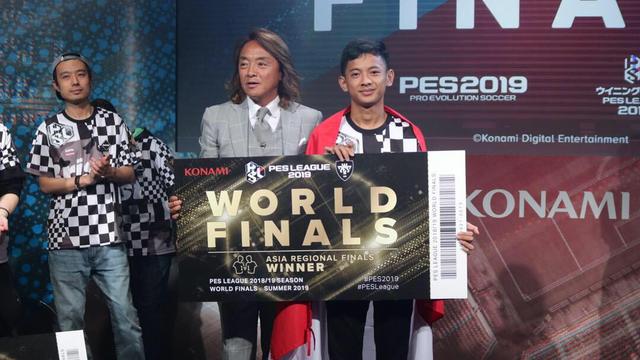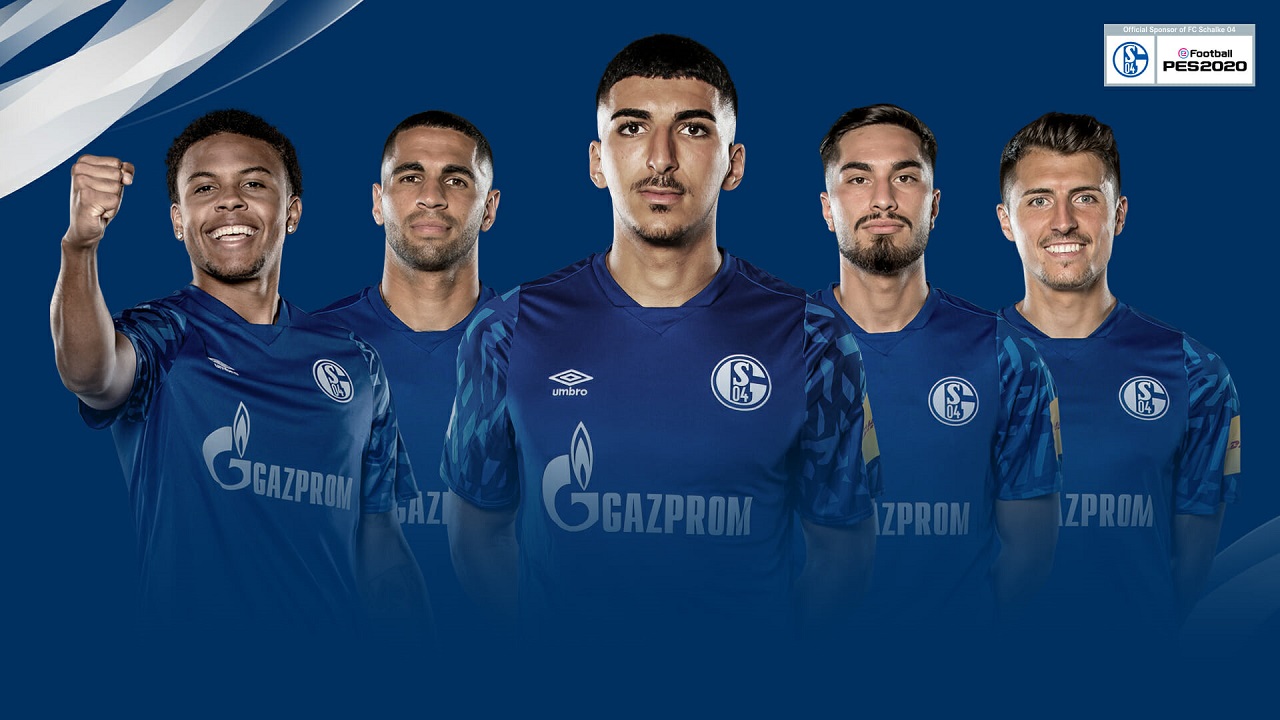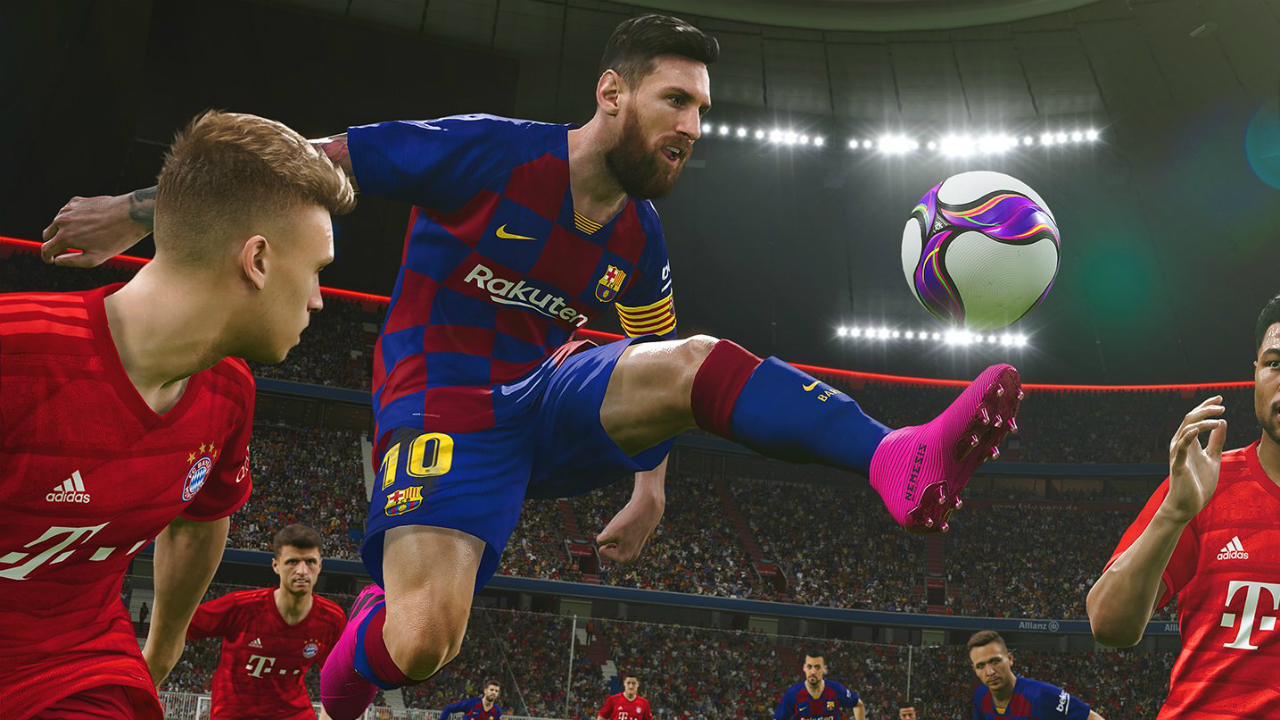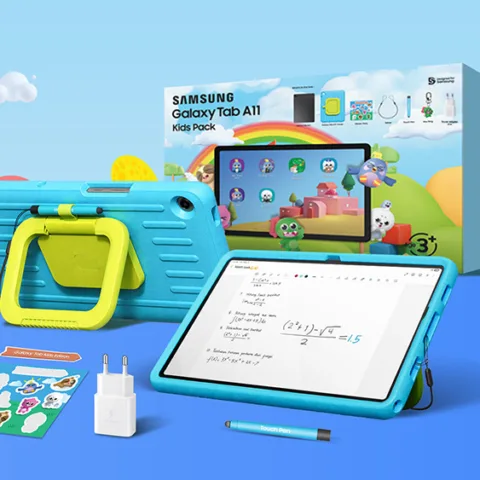There is a saying that goes: if you can’t beat them, join them. This statement best describes what is currently happening with football clubs and the esports scene. Esports has become an enormous and legitimate industry, far different than what it was a long time ago. Capitalizing on this immense growth, football clubs have begun to enter the world of esports through various methods such as recruiting professional players, working with esports organizations, or even creating their own esports division. This phenomenon is also occurring in Indonesia today.
Which football clubs have explored esports?
According to The Esports Observer‘s report, the first-ever football club to dive into the world of esports is Turkey’s Besiktas Istanbul. They created the Besiktas e-Sports Club in January 2015. Unfortunately, the Besiktas esports division did not last very long and got disbanded just a year later. This tragedy, however, does not discourage other football clubs from trying to enter the world of esports.
Since then, many football clubs have attempted to enter the world of esports, each with their own unique approach. For example, VFL Wolfsburg – a football club that competes in the Bundesliga, Germany – chose to partner up with FIFA player Benedikt “Salz0r” Saltzer in 2015. Wolfsburg is not the only football club to have opted for this approach. In May 2016, West Ham United also teamed up with Sean “Dragonn” Allen. In the same year, Manchester City also partnered with professional FIFA player Kieran “Kez” Brown.
Most football clubs in Indonesia also adopted this approach. We can take PERSIJA or other clubs playing in the Indonesia Football e-League (IFeL), the virtual version of Liga 1, as an example. Moreover, most of the players recruited by these clubs have succeeded in making achievements in the PES esports scene, such as Rizal “Ivander” Danyarta, representing PERSIJA, Rizky Faidan, representing PSS Sleman, or LuckyMaarif representing PERSIK Kediri.

Another approach that football clubs usually take when they want to enter the esports world is to partner with an esports organization. If you are going to jump into a new industry that you haven’t explored, it’s easier to work with organizations or entities who are already experienced. Simply put, you won’t have to go through the trouble of building the whole infrastructure from the ground up. Therefore, this approach is much more strategic than the previous one (recruiting or partnering with a single esports player).
The first football club to use this strategy is Santos FC. In August 2015, the Brazilian club collaborated with Dexterity Team, which has rosters in League of Legends, Counter-Strike: Global Offensive, Battlefield 4, and Heroes of the Storm. The following year, Clube do Remo, also from Brazil, partnered up with Brave e-Sports. They have rosters in Hearthstone, Heroes of the Storm, and SMITE.
A couple of months ago, in November 2020, AC Milan announced their collaboration with the local esports team Qlash. Juventus also partnered with Astralis – one of the most acknowledged teams in all of CS: GO – to represent them in the eFootball PES league 2019/2020 season.
There are also football clubs that choose to form their own esports division, such as Arsenal. However, they do not manage their own esports division. Instead, Arsenal delegated the management of their esports division to the Esports Gaming League. Therefore, responsibilities such as talent searches, interviews, and signing player contracts are all accomplished by a separate entity.
Interestingly, the participation of these clubs in the esports industry is not limited to virtual football leagues. Several football clubs create teams which compete in other esports games besides FIFA and PES. An example of this is Schalke 04. The German team bought the European League of Legends team, Elements, in 2016. Until now (2020), the Schalke esports team is still competing in the League of Legends European Championship. At LEC Summer 2020, they managed to win fifth place and prize money of US$14,802.

Another example is Paris Saint-Germain. Currently, they have teams that compete in three esports games: Dota 2, League of Legends, and Brawl Stars. Previously, PSG had also tried to enter Mobile Legends by collaborating with RRQ. Unfortunately, this collaboration only lasted about a year and a half.
Why are football clubs interested in getting into esports?
Previously, Hybrid had discussed the importance of player regeneration in the world of esports. Similarly, in the world of football, the regeneration of players and fans is also equally important. The average age of a Premier League fan is 42 years old, according to marketing company CSM Sport & Entertainment. As a comparison, based on the research conducted by Paper Money Grading in 2018, the average age of an esports viewer is 26 years old. Therefore, for these football clubs, attracting the younger generation of viewers can be the primary motive to enter the esports world.
“The average age for a Premier League fan is 42 and rising, and no doubt is higher than 42 within developed fan markets like in the UK. This ageing fan base begs two questions to football clubs: How do the clubs ensure their longevity and remain relevant to the next generation of sports fans? And how do they ensure to keep the sponsors interested in their clubs?” Said Corporate Strategy Director, CSM Sport & Entertainment James Gallagher-Powell in the ESI Digital Summer, as quoted from Insider Sport. “Esports can provide the perfect channel for this. It’s a way that clubs can attract a younger audience to their core operations, i.e football, and it can help clubs to safeguard their future popularity and therefore their future profitability.”
The same notion was expressed by the Chairman of the European Club Association and Chairman of Juventus, Andrea Agnelli. Last year, he advised the football industry to be ready to compete with the gaming industry in capturing the interests of potential fans.
“Now, the habits of the fans are starting to change,” said Agnelli, from an article by Goal. We’re looking at ‘Generation Z’, the new digital natives who are turning into adulthood. We have to look at what is the behaviour of ‘Generation Z’. We should seriously start to think that the competitors are not clubs next door but League of Legends, e-sports, Fortnite. I think those are going to be the ones who are going to be our competitors going forward.
VIEWERS
Viewers and fans are not the only driving factor in entering the world of esports for football clubs. According to Gallagher-Powell, esports could be a major source of income for football clubs in the future. He realized that the franchise fees in large esports leagues are now in the price range of US$ 10-50 million, similar to the European soccer leagues around 20 years ago.
In 2018, slots in the League of Legends European Championship were valued at US$13 million. In the same year, Activision Blizzard set the price of the Overwatch League slot at US$20 million for the first 12 teams. They then offer an extra slot valued at around US$ 30-60 million.
Furthermore, football clubs can also use esports as a marketing tool, as suggested by Esports Insider’s Co-founder and Managing Director, Sam Cooke. In September 2019, Manchester City announced its partnership with the FaZe Clan. Through this collaboration, the two of them will make limited edition co-branded merchandise. Moreover, Manchester City will also have professional players representing them in Faze Clan’s FIFA matches, in the hopes of marketing their brand.
However, sports games like FIFA and PES are still less popular than MOBA and FPS games, such as Dota 2 or CS: GO. According to Remer Rietkerk, Head of Esports at Newzoo, the three most popular esports games right now are League of Legends, CS: GO, and Dota 2. In 2019, the total watched hours of the three games on Youtube and Twitch combined reached 845 million hours. As a comparison, FIFA 19’s total watched hours only reached 8 million hours, and FIFA 20 only reached 3 million hours.
“Fifa is a good game, many people play the game, but no hardcore esports fan will tell you, ‘I’ve been watching Fifa for years’,” said Carlos Rodriguez, the founder of G2 Esports, quoted from Financial Time.
The same idea was expressed by Account Director, CSM Sport & Entertainment, Debs Scott-Bowden. Indeed, being active in the FIFA and PES esports scene is not bad at all, as it may provide extra exposure to sponsors. However, the number of viewers of football esports games will never reach the heights of MOBA and FPS games.
⭐
WE ARE @BrawlStars WORLD CHAMPIONS
3-0 @NovaEsportsTeam
3-0 @SKGaming
3-0 @INTZWhat an AMAZING RUN
250.000$
#ICICESTPARIS pic.twitter.com/J7x3qzUIYE
— PSG Esports (@PSGeSports) November 22, 2020
Therefore, football clubs that wish to reach a much larger audience must explore the esports scene of more popular games, such as League of Legends and CS: GO. Several football clubs already took up this approach, such as Schalke 04, PSG, and FC Copenhagen. An example of a football team from Indonesia that has taken this approach is Bali United (IOG Esports); they have rosters in Free Fire and Mobile Legends.
“This route is naturally higher risk, but potential benefits are considerably greater,” said Gallagher-Powell. “The non-football or non-sports titles are the most-watched and most followed with fan numbers that dwarf that of FIFA or Rocket League. If a club wants to attract a large number of new fans, naturally, they’re better off using games with the largest followings.”
Substantial operating costs are also one of the obstacles that must be faced by football clubs if they want to create an esports team from a popular game. When a team wants to enter an esports league with a franchise system – as Schalke 04 does – they have to pay a considerable fee. Not only that, the salaries of esports players from League of Legends, Dota 2, or CS: GO are also significantly more expensive than FIFA or PES players. As an illustration, the salary of a high-end League of Legends player can fund an entire FIFA esports team, according to Gallagher.
How about Indonesia?
In Indonesia, football clubs and professional esports players are brought together in the Indonesia Football e-League (IFeL). Putra Sutopo, Head of IFeL said, “the initial motive of creating the IFeL was our envy of neighbouring countries having their own virtual version of League 1. We want to create something similar to that. As a matter of fact, there are currently many Indonesian players in Thailand’s League 1. As proof, the top 5 teams in the League mostly consist of Indonesian players.”
Putra admitted that he was initially surprised by this phenomenon. He eventually realized that the football fanbase in Indonesia is not only massive but also very enthusiastic. He, and many others, even consider the football fans in Indonesia to be ‘fanatical’. From there, he then took the initiative to invite League 1 clubs to participate in IFeL. “The results and responses we received were beyond our expectations,” he said. “The number of viewers is quite massive, even far exceeding neighbouring leagues.”
Both football teams and professional players, of course, have their own separate fanbase. Putra revealed that IFeL’s viewers are a combination of the two fanbases. He also believes that the football and esports leagues can go hand in hand without any interferences, such as fighting over viewership or audiences. “The esports competition is usually conducted in the pre-event,” said Putra. “For example, if the soccer game commences at 7 pm, we’ll have an esports match at 5.”

According to Putra, cooperation between the football team and professional players can be considered as a mutualistic relationship. The esports industry, especially the virtual soccer scene, will benefit from the increasing amount of entities participating in the development of the industry.
“With the increasing number of football clubs entering the esports world, we hope that PSSI will finally recognize this industry,” he said. “In my opinion, this will become a massive leap for the virtual football industry as our country still extensively lags behind many neighbouring countries in terms of the development of the industry.”
The involvement of football clubs in the esports industry can benefit many players in the industry, said Rizki Darmawan, CEO and Founder of IVPL. That advantage is emotional bonding. The primary reason people watch football esports content is to get some knowledge of the game or support the content creator. They are actually less interested in the esports content of football itself.
The case is very different from football club fans, said Rizki. They usually have strong emotional ties to the club, so they will remain loyal and support their favourite team, regardless if that team wins or loses. Hopefully, this loyalty will translate towards the virtual football game if their respective favourite clubs decide to collaborate. For this reason, IVPL plans to collaborate with Liga 2 teams.
“We want to tap into League 2 to create emotional bonds. Football fans always stay loyal to their team even if they underperformed. We want to take advantage of this relationship between fans and their clubs to create something different,” said Rizki. He compared the emotional bond between a football club fan and a celebrity’s fan. “Fans of a particular celebrity always want to know what he or she is doing. That’s the exact formula we are going to use.”
The one aspect that distinguishes IFeL and IVPL is that IFeL focuses on 1v1 matches in PES, while IVPL focuses on 11v11 competitions in FIFA. Rizki revealed that his long-term goal is to create a virtual football national team.
There are plenty of benefits that football clubs can obtain if they enter the esports scene. Rizki revealed, “They will get new fans, new sources of income, and sell new merchandise.” He added that managing a virtual league is also much less demanding than a football league. For example, tournaments can be held online and watched from home. “You don’t have to go through the trouble of renting out a venue for the tournament, saving a tremendous amount of costs. You essentially only have to focus on managing the tournament itself,” he said.
Similar to Rizki’s views, Putra also said that getting into esports would allow the clubs to expand their market and reach out to the millennial or younger generation. “If they can make good use of this, esports can be a very profitable prospect for football clubs,” he said. “Unfortunately, not many football clubs in Indonesia understand the esports business model just yet.”
Putra further explained that the newly made football club esports teams will have no trouble participating in esports matches. “This can be a good source of income for the club,” he said. “It will also not be difficult for them to get sponsorship simply because their brands are already big and established.” He added that the club can also make a profit from selling or loaning their players.
Of course, there are still many clubs out there that are ignorant of the whole esports scene. However, Putra felt this problem could be resolved by opening the minds of football teams about the esports industry. “They are ignorant simply because they are not yet familiar with the esports business system. However, with the existence of IFeL, we can already see that several clubs have finally dive into the industry and open their own teams, such as PERSITA,” said Putra.
Conclusion
There are several reasons why football can be one of the most popular sports in the world. Firstly, the game itself is simple and easy to understand. Playing football also does not require any special equipment that is difficult to set up, such as a PC. All you need is the ball, ample space for the field, and of course, some friends to play together. However, these days, it is not really easy to obtain those things. On the flip side, everyone today pretty much has smartphones. Not only that, many games can be played for free. So don’t be surprised if some people prefer to play games over football.
However, football and esports leagues don’t have to fight for fans and viewership. Instead, the two of them can stand side by side and work together. We can see this partnership during the coronavirus pandemic where various football leagues were converted into virtual football matches, such as leagues in Singapore and Malaysia.
The collaboration between football clubs and esports players has also proven to be beneficial for both parties. So instead of trying to take over each other’s viewership like some zero-sum game, the esports and football industry should cooperate, support, strengthen each other, and use this opportunity to grow together.
This article is translated by Ananto Joyoadikusumo. Feat image: eFootball PES 2021 Season Update.













